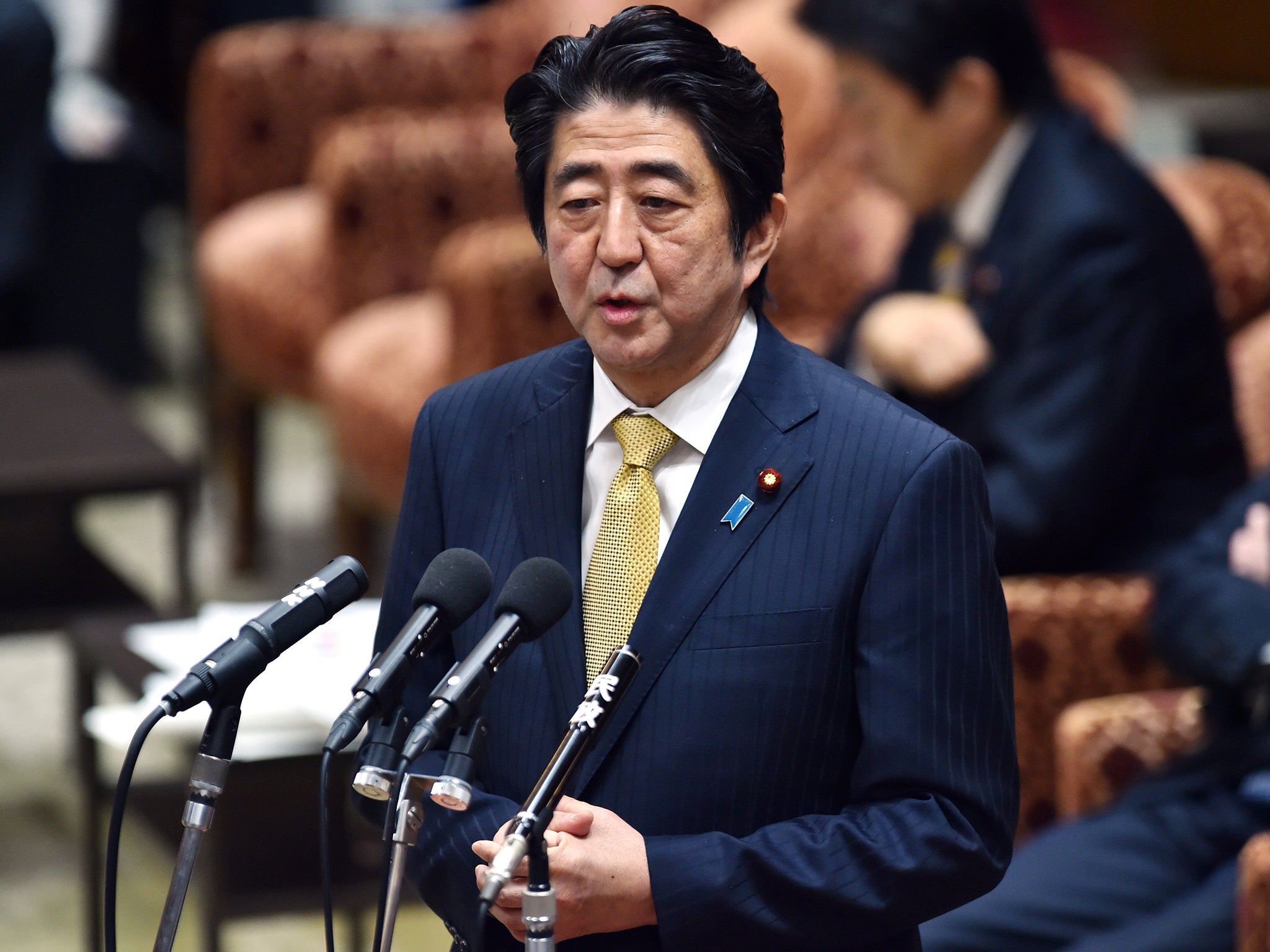Japanese Prime Minister urged to embrace apartheid for foreign workers
Adviser recommended that immigrants in the world’s third-largest economy be separated by race

Your support helps us to tell the story
From reproductive rights to climate change to Big Tech, The Independent is on the ground when the story is developing. Whether it's investigating the financials of Elon Musk's pro-Trump PAC or producing our latest documentary, 'The A Word', which shines a light on the American women fighting for reproductive rights, we know how important it is to parse out the facts from the messaging.
At such a critical moment in US history, we need reporters on the ground. Your donation allows us to keep sending journalists to speak to both sides of the story.
The Independent is trusted by Americans across the entire political spectrum. And unlike many other quality news outlets, we choose not to lock Americans out of our reporting and analysis with paywalls. We believe quality journalism should be available to everyone, paid for by those who can afford it.
Your support makes all the difference.An adviser on education policies to Japan’s right-wing government has sparked a furore by recommending that immigrants in the world’s third-largest economy be separated by race.
In a column for the conservative Sankei newspaper, Ayako Sono said apartheid-era South Africa showed that whites, Asians and blacks should live apart. “Black people fundamentally have a philosophy of large families,” she wrote. “For whites and Asians, it was common sense for a couple and two children to live in one complex. But blacks ended up having 20 to 30 family members living in a single unit.”
Ms Sono is a best-selling conservative author and a vocal supporter of Prime Minister Shinzo Abe’s efforts to revive patriotic education. Mr Abe appointed her to a panel on educational reform in 2013 but the government says she has since quit. She has also been quoted in a government-recommended textbook on morals for secondary school students, alongside Mother Theresa and other prominent figures.
The column, written on Japan’s National Foundation Day, traditionally a holiday for expressing patriotism, sparked outrage, with online commentators branding it “disgusting” and “appalling”.

“So while the rest of the civilised world was condemning apartheid, Sono decided that she rather liked it, and now wants to bring it back,” wrote a blogger on the Japan Times website. “And she is a government appointment on an education panel?”
Japan’s government is considering allowing 200,000 foreigners a year to enter the country to head off a growing demographic crisis. The country’s population is aging and declining, falling by nearly a quarter of a million in 2013.
An advisory body to Mr Abe said last year that opening the immigration drawbridge to more foreigners would eventually help stabilise the population – currently 127 million – “at around 100 million”.
The Asian powerhouse has so far shunned the mass immigration policies of other developed economies. Less than two per cent of the population is foreign, and that includes hundreds of thousands of long-term residents from China and Korea.
Government spokesman Yoshihide Suga sidestepped a question about whether Ms Sono’s article reflected Mr Abe’s views at a regular press conference on Friday, saying only that immigration policies would be “fair and based on the law”.
The Sankei defended running the column, saying it was “natural” to run “all kinds of views”. The newspaper was forced to apologise in December after it ran an advert blaming Jews for the country’s 2011 earthquake-tsunami tragedy.
In her column, Ms Sono said Japan’s chronic labour shortage was forcing the country to consider more immigrants, but added that after studying the situation in South Africa “for 30-40 years” such policies would only work if the country segregated races. “It is next to impossible to attain an understanding of foreigners by living alongside them,” she said.
She said black Africans had ruined areas previously reserved for whites in the country and they would do the same thing to Japan if allowed to do so. According to the Japanese media, the author has never lived in South Africa.
In 2000, she earned some notoriety when she allowed Peru’s fugitive president, Alberto Fujimori, to stay in her Tokyo house. Mr Fujimori subsequently returned to Peru and was convicted of crimes against humanity in 2008.
Join our commenting forum
Join thought-provoking conversations, follow other Independent readers and see their replies
Comments